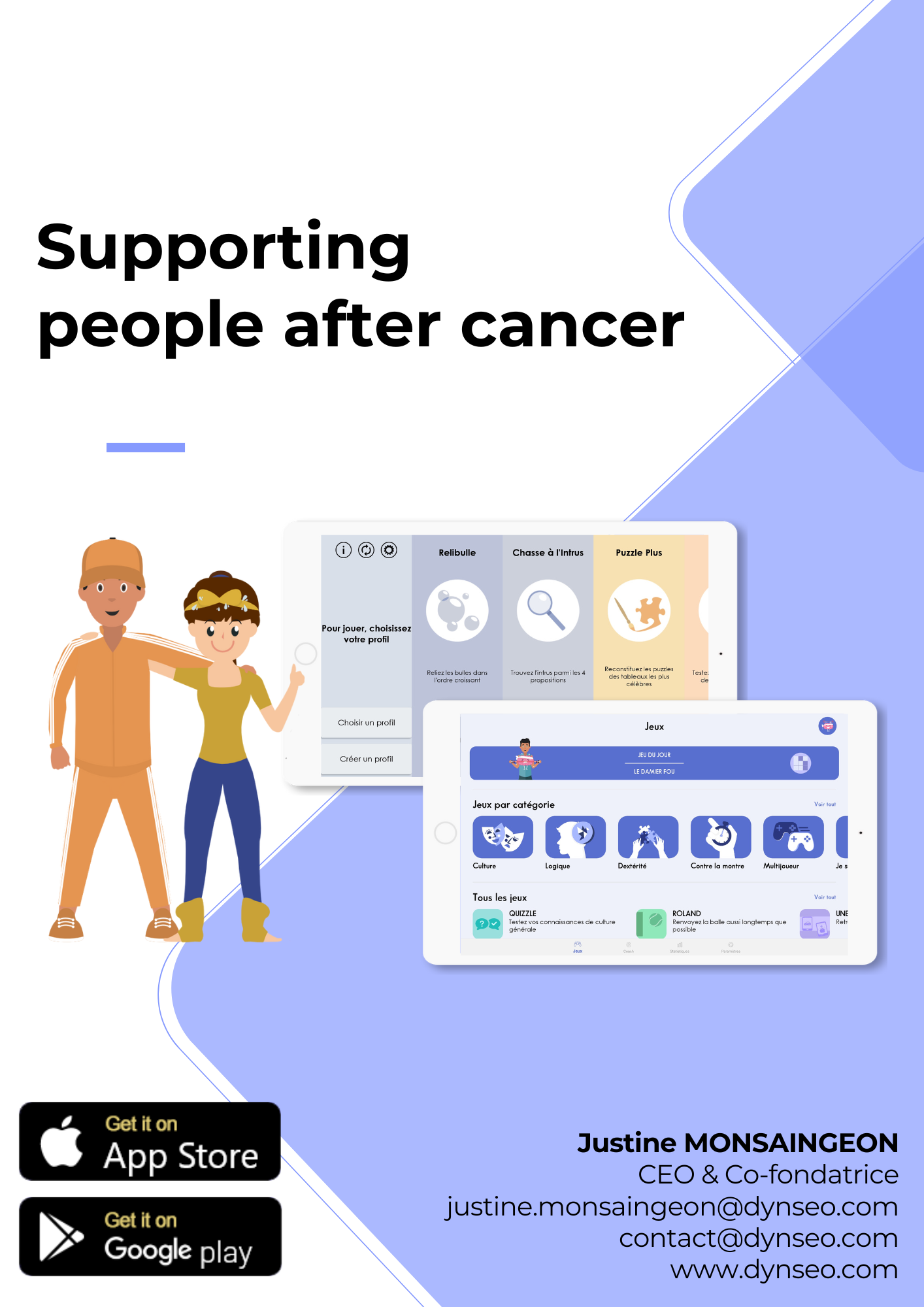Cancer treatment can have profound effects on various aspects of a survivor’s life, particularly in the realms of speech and cognitive function. Many of us may not realize that therapies such as chemotherapy, radiation, and surgery can lead to cognitive impairments, often referred to as “chemo brain.” This phenomenon encompasses a range of symptoms, including memory lapses, difficulty concentrating, and challenges in verbal communication. As we navigate through the complexities of cancer treatment, we may find ourselves grappling with these cognitive changes, which can significantly impact our daily interactions and overall quality of life.
The emotional toll of these changes can be just as significant, as we may feel frustrated or isolated due to our inability to communicate effectively or think clearly. Moreover, the impact of cancer treatment on speech can be particularly pronounced for those who have undergone surgeries involving the head and neck. These procedures can lead to alterations in voice quality, articulation difficulties, and even swallowing issues.
As we reflect on our experiences, it becomes evident that the journey through cancer treatment is not solely about physical recovery; it also encompasses the restoration of our cognitive and communicative abilities. Understanding these challenges is crucial for us as survivors, as it allows us to seek appropriate support and interventions that can aid in our rehabilitation process.
The Role of Speech Therapy in Supporting Cancer Survivors
Speech therapy plays a vital role in the rehabilitation of cancer survivors facing speech and cognitive challenges. For many of us, engaging with a speech-language pathologist can provide tailored strategies to address specific communication difficulties. These professionals are equipped with the knowledge and skills to assess our individual needs and develop personalized treatment plans that focus on improving speech clarity, language comprehension, and cognitive-communication skills.
Through targeted exercises and techniques, we can work towards regaining our confidence in speaking and expressing ourselves effectively. In addition to addressing speech-related issues, speech therapy also encompasses cognitive-communication therapy, which focuses on enhancing our cognitive skills that are essential for effective communication. This may include improving attention, memory, and problem-solving abilities.
As we participate in therapy sessions, we may find ourselves engaging in various activities designed to stimulate our cognitive functions while simultaneously working on our speech. The supportive environment created by speech therapists fosters a sense of empowerment, allowing us to take an active role in our recovery journey.
Introducing Cognitive Apps as a Complementary Approach for Rehabilitation

In recent years, technology has revolutionized rehabilitation for individuals recovering from cancer. Among the most promising innovations are cognitive apps, which provide cancer survivors with an additional tool to enhance their cognitive and communicative abilities. These apps work in tandem with traditional speech therapy, offering a range of interactive exercises designed to improve key cognitive functions such as memory, attention, problem-solving, and executive function.
1. Accessibility and Flexibility in Rehabilitation
For cancer survivors, one of the greatest benefits of cognitive apps is the accessibility they offer. These apps allow individuals to practice cognitive exercises from the comfort of their homes, providing the flexibility to engage in rehabilitation at their own pace.
- Convenience: No need for in-person appointments—users can access exercises anytime, anywhere.
- Self-Paced Learning: Survivors can take their time with each task, progressing only when they feel ready.
This approach eliminates barriers such as transportation difficulties or scheduling conflicts, ensuring consistent and ongoing rehabilitation.
2. Engaging and Stimulating Activities
Cognitive apps like Scarlett are designed with engaging activities that not only stimulate the mind but also keep users motivated. These apps typically offer a variety of brain games, puzzles, and interactive challenges tailored to users’ needs.
- Interactive Games: Scarlett, for example, features simple yet stimulating exercises that target memory, attention, and problem-solving skills.
- User-Friendly Interface: These apps are designed with seniors in mind, offering easy-to-navigate interfaces and clear instructions.
- Variety of Exercises: The range of activities helps prevent monotony, keeping users engaged and motivated.
The enjoyable nature of these exercises ensures that cancer survivors remain consistent in their rehabilitation efforts, which is key for long-term recovery.
3. Reinforcing Traditional Speech Therapy
When cognitive apps are used alongside traditional speech therapy, they complement the skills and concepts learned in clinical sessions.
- Practice in Real-World Contexts: While speech therapy addresses specific speech and language challenges, cognitive apps help reinforce cognitive functions in a broader context, promoting general cognitive health.
- Holistic Rehabilitation: This dual approach—combining in-person therapy with technology—helps ensure that cognitive rehabilitation is comprehensive and well-rounded.
Through this combination of methods, cancer survivors have a more integrated approach to their recovery, strengthening both cognitive skills and communication abilities.
4. Empowering Cancer Survivors
The use of cognitive apps also empowers cancer survivors by giving them control over their rehabilitation journey.
- Autonomy: By engaging with these apps independently, individuals feel more in charge of their progress.
- Motivation: Gamified elements and positive reinforcement help to maintain motivation, fostering a sense of accomplishment as survivors see improvements in their cognitive abilities.
This empowerment can be particularly valuable for cancer survivors, as it enables them to actively participate in their recovery process, improving both their cognitive health and overall well-being.
Benefits of Using Cognitive Apps for Cancer Survivors
The benefits of using cognitive apps extend beyond mere convenience; they offer a range of advantages that can significantly enhance our rehabilitation experience. One of the primary benefits is the ability to practice cognitive skills consistently. With busy schedules and varying energy levels, it can be challenging for us to attend regular therapy sessions.
Cognitive apps provide us with the flexibility to engage in exercises whenever we feel ready, allowing us to maintain a consistent practice routine that aligns with our individual needs. Additionally, cognitive apps often incorporate gamification elements that make learning enjoyable. As we engage with these apps, we may find ourselves motivated by rewards, challenges, and progress tracking features that encourage us to continue practicing.
This sense of achievement can boost our confidence and foster a positive attitude towards rehabilitation. Furthermore, many cognitive apps are designed with social features that allow us to connect with others who are on similar journeys, creating a sense of community and support that can be invaluable during our recovery process.
How Speech Therapy and Cognitive Apps Work Together for Improved Outcomes
The synergy between speech therapy and cognitive apps creates a powerful framework for enhancing our rehabilitation outcomes. By combining the personalized guidance of a speech-language pathologist with the interactive nature of cognitive apps, we can experience a more comprehensive approach to addressing our communication challenges. During therapy sessions, our speech therapists can identify specific areas where we may need additional practice and recommend corresponding exercises within the app that align with our goals.
As we engage with cognitive apps outside of therapy sessions, we reinforce the skills learned during those sessions in a dynamic and engaging manner. This dual approach allows us to bridge the gap between structured therapy and independent practice, ultimately leading to improved communication abilities and cognitive function over time. The integration of technology into our rehabilitation journey empowers us to take ownership of our progress while benefiting from the expertise of trained professionals.
Overcoming Challenges and Barriers in Accessing Speech Therapy and Cognitive Apps

Despite the numerous benefits associated with speech therapy and cognitive apps, there are still challenges that we may encounter when seeking access to these resources. One significant barrier is the availability of qualified speech-language pathologists in certain areas. For some of us living in rural or underserved regions, finding a therapist who specializes in cancer-related communication issues may prove difficult.
Additionally, financial constraints can limit access to both traditional therapy services and premium cognitive apps. To overcome these challenges, it is essential for us to advocate for ourselves and explore alternative options. Many organizations offer teletherapy services that connect us with licensed speech therapists remotely, providing greater accessibility regardless of geographical location.
Furthermore, some cognitive apps are available for free or at a reduced cost, making them more accessible for those facing financial limitations. By actively seeking out these resources and utilizing available technology, we can enhance our rehabilitation journey despite any obstacles we may encounter.
Success Stories: Real-life Examples of Cancer Survivors Benefiting from Speech Therapy and Cognitive Apps
The stories of cancer survivors who have successfully navigated their rehabilitation journeys serve as powerful reminders of the potential for recovery through speech therapy and cognitive apps. For instance, one survivor named Sarah faced significant challenges with her speech following treatment for throat cancer. Through dedicated sessions with her speech therapist, she learned techniques to improve her articulation while also incorporating the Scarlett app into her daily routine.
Over time, Sarah noticed remarkable improvements in her communication skills and regained her confidence in social situations. Similarly, another survivor named John experienced cognitive difficulties after undergoing chemotherapy for lymphoma. With the guidance of his speech therapist, he began using the Clint app to engage in targeted cognitive exercises designed to enhance his memory and attention span.
As he consistently practiced with the app alongside his therapy sessions, John found himself better able to concentrate during conversations and recall important information. These success stories highlight the transformative impact that a combination of speech therapy and cognitive apps can have on our lives as cancer survivors.
The Future of Integrating Speech Therapy and Cognitive Apps in Cancer Survivorship Care
As we look towards the future of cancer survivorship care, it is clear that integrating speech therapy with cognitive apps will play an increasingly important role in supporting our recovery journeys. The ongoing advancements in technology will likely lead to even more innovative applications designed specifically for cancer survivors facing communication challenges. These developments will not only enhance accessibility but also provide us with tailored resources that cater to our unique needs.
Moreover, as awareness grows regarding the impact of cancer treatment on speech and cognitive function, healthcare providers may begin to prioritize comprehensive rehabilitation programs that incorporate both traditional therapies and technological solutions. By fostering collaboration between speech therapists and app developers, we can create a more cohesive approach to survivorship care that empowers us as individuals on our healing journeys. Ultimately, this integration will pave the way for improved outcomes and a brighter future for all cancer survivors navigating the complexities of recovery.
For cancer survivors looking to enhance their cognitive abilities through speech therapy, integrating cognitive apps into their rehabilitation process can be highly beneficial. An excellent resource to explore in this context is the article on memory games available at Dynseo. These games are designed to help improve memory and other cognitive functions, which can be crucial for those recovering from cancer treatments that may have affected their cognitive health. To learn more about how these games can aid in cognitive rehabilitation, visit Memory Games for Cognitive Enhancement. This resource provides a variety of games that are both engaging and beneficial in strengthening cognitive skills.




